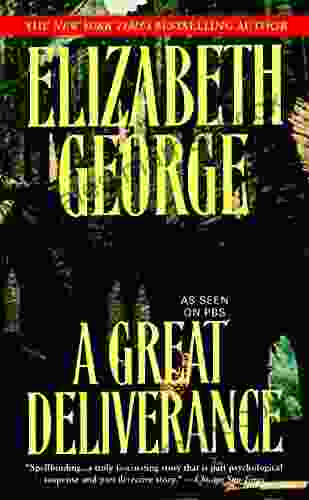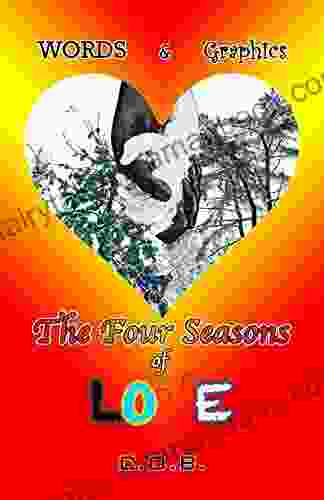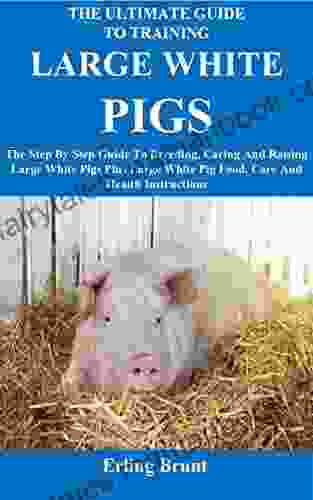King Lear: A Mirror to the Fragility of Power

King Lear, one of William Shakespeare's most profound and enduring tragedies, delves into the complexities of human nature, exposing the fragility of power and the devastating consequences of ambition. Through the play's intricate tapestry of characters, plot twists, and evocative language, Shakespeare invites us to question the nature of authority, the bonds of family, and the limits of human endurance. This article will embark on a comprehensive examination of King Lear, exploring its timeless themes, intricate characters, and enduring relevance in the human experience.
The Characters: A Chorus of Tragedy
At the heart of King Lear lies a cast of characters as rich and multifaceted as the play itself. The titular King Lear, a figure of immense power and pride, is a patriarch whose blind ambition and misguided actions set in motion the play's tragic events. His three daughters, Goneril, Regan, and Cordelia, represent a spectrum of filial love and treachery, testing the limits of their father's love and the bonds of family.
4.4 out of 5
| Language | : | English |
| File size | : | 1796 KB |
| Text-to-Speech | : | Enabled |
| Screen Reader | : | Supported |
| Enhanced typesetting | : | Enabled |
| Print length | : | 85 pages |
| Lending | : | Enabled |
The play introduces us to a cast of supporting characters who play pivotal roles in the unfolding tragedy. The Earl of Kent, a loyal and steadfast servant to Lear, represents the voice of reason and morality, while Edmund, the illegitimate son of the Earl of Gloucester, embodies the corrosive nature of ambition and envy. These characters, each with their own motivations and complexities, contribute to the play's tapestry of tragedy, exposing the fragility of human relationships and the destructive power of unchecked ambition.
The Plot: A Tapestry of Betrayal and Redemption
The plot of King Lear is a complex and emotionally charged journey, spanning from the heights of power to the depths of despair. The play opens with Lear, in his declining years, deciding to divide his kingdom among his three daughters. However, his desire for flattery and reassurance leads him to make a rash decision, casting off his youngest and most loving daughter, Cordelia, for refusing to indulge his vanity.
This act of injustice sets in motion a chain of events that unravels the fabric of Lear's world. Goneril and Regan, driven by ambition and greed, turn against their father, stripping him of his power and dignity. Cordelia, despite being banished, remains steadfast in her love for her father, raising an army to fight for his restoration. The play reaches its climax on the storm-battered heath, where Lear, stripped of his illusions and facing his own mortality, undergoes a profound transformation.
As the tragedy unfolds, Shakespeare explores the interplay between free will and fate, choice and consequence. The characters' actions, both calculated and impulsive, shape their destinies, leading them towards an inevitable and heartbreaking end. Through the play's intricate plot, Shakespeare reveals the fragility of human power and the enduring power of redemption.
The Language: A Symphony of Emotion
The language of King Lear is as evocative and poetic as the play's themes and characters. Shakespeare employs a rich tapestry of literary devices, including metaphor, simile, and imagery, to create a vivid and emotionally resonant world for his characters. The play's dialogue is a symphony of emotion, capturing the range of human experience from love and loyalty to despair and madness.
In particular, the play's use of soliloquies provides an intimate window into the characters' inner thoughts and feelings. Lear's famous "Blow, winds, and crack your cheeks!" speech on the heath is a tour-de-force of human emotion, expressing the full range of his anguish, despair, and vulnerability. Through the play's evocative language, Shakespeare invites us to experience the full spectrum of the human condition, from its heights of passion to its depths of despair.
The Enduring Relevance of King Lear
King Lear has stood the test of time, captivating audiences for centuries with its timeless themes and universal human truths. The play's exploration of power, ambition, and the fragility of human relationships resonates deeply with audiences of all ages and backgrounds.
In an era characterized by political turmoil and social upheaval, King Lear offers a cautionary tale about the dangers of unchecked ambition and the corrosive nature of power. The play's message of humility, compassion, and the importance of strong family bonds remains as relevant today as it was when it was first written.
Furthermore, King Lear continues to be a subject of literary and scholarly fascination, inspiring countless adaptations, interpretations, and critical analyses. The play's enduring legacy is a testament to its timeless appeal and its ability to provoke thought, inspire empathy, and challenge our understanding of the human condition.
King Lear, with its intricate characters, complex plot, evocative language, and enduring themes, stands as one of William Shakespeare's greatest tragedies. The play's exploration of power, ambition, and the fragility of human relationships remains as relevant today as it was when it was first written. Through its timeless themes and universal human truths, King Lear continues to captivate audiences, challenging our understanding of the human condition and inspiring empathy and reflection. The play's enduring legacy is a testament to its timeless appeal and its ability to provoke thought, inspire emotion, and resonate deeply with audiences of all ages and backgrounds.
4.4 out of 5
| Language | : | English |
| File size | : | 1796 KB |
| Text-to-Speech | : | Enabled |
| Screen Reader | : | Supported |
| Enhanced typesetting | : | Enabled |
| Print length | : | 85 pages |
| Lending | : | Enabled |
Do you want to contribute by writing guest posts on this blog?
Please contact us and send us a resume of previous articles that you have written.
 Top Book
Top Book Novel
Novel Fiction
Fiction Nonfiction
Nonfiction Literature
Literature Paperback
Paperback Hardcover
Hardcover E-book
E-book Audiobook
Audiobook Bestseller
Bestseller Classic
Classic Mystery
Mystery Thriller
Thriller Romance
Romance Fantasy
Fantasy Science Fiction
Science Fiction Biography
Biography Memoir
Memoir Autobiography
Autobiography Poetry
Poetry Drama
Drama Historical Fiction
Historical Fiction Self-help
Self-help Young Adult
Young Adult Childrens Books
Childrens Books Graphic Novel
Graphic Novel Anthology
Anthology Series
Series Encyclopedia
Encyclopedia Reference
Reference Guidebook
Guidebook Textbook
Textbook Workbook
Workbook Journal
Journal Diary
Diary Manuscript
Manuscript Folio
Folio Pulp Fiction
Pulp Fiction Short Stories
Short Stories Fairy Tales
Fairy Tales Fables
Fables Mythology
Mythology Philosophy
Philosophy Religion
Religion Spirituality
Spirituality Essays
Essays Critique
Critique Commentary
Commentary Glossary
Glossary Bibliography
Bibliography Index
Index Table of Contents
Table of Contents Preface
Preface Introduction
Introduction Foreword
Foreword Afterword
Afterword Appendices
Appendices Annotations
Annotations Footnotes
Footnotes Epilogue
Epilogue Prologue
Prologue Tricia Norma
Tricia Norma Ben Galley
Ben Galley Paul Valent
Paul Valent Mark Seal
Mark Seal Joanna Gaines
Joanna Gaines List Series
List Series Prince Sarpong
Prince Sarpong Tim Spector
Tim Spector Seongju Choi
Seongju Choi Joelle Taylor
Joelle Taylor Robert Hobkirk
Robert Hobkirk Andrew Murray
Andrew Murray Donald L Brady
Donald L Brady Blake Neri
Blake Neri Reed Hastings
Reed Hastings Robyn Carr
Robyn Carr K K Allen
K K Allen Martha Cheng
Martha Cheng Veronica Dinkins
Veronica Dinkins Kit Wright
Kit Wright
Light bulbAdvertise smarter! Our strategic ad space ensures maximum exposure. Reserve your spot today!

 Morris CarterIntroducing Novia The Nine: The Game-Changing Electric Scooter for the Urban...
Morris CarterIntroducing Novia The Nine: The Game-Changing Electric Scooter for the Urban... Casey BellFollow ·17.2k
Casey BellFollow ·17.2k Tom ClancyFollow ·12.6k
Tom ClancyFollow ·12.6k Henry HayesFollow ·5.3k
Henry HayesFollow ·5.3k Everett BellFollow ·6.6k
Everett BellFollow ·6.6k Owen SimmonsFollow ·13.4k
Owen SimmonsFollow ·13.4k Ernest ClineFollow ·18k
Ernest ClineFollow ·18k Diego BlairFollow ·16.4k
Diego BlairFollow ·16.4k Easton PowellFollow ·17.9k
Easton PowellFollow ·17.9k

 Edwin Cox
Edwin CoxThe Great Deliverance Inspector Lynley: A Literary...
: In the realm of detective fiction,...

 Christian Carter
Christian CarterMetal Gear Solid Ground Zeroes Guide, Walkthrough, Tips,...
Metal Gear Solid...

 Branden Simmons
Branden SimmonsYellow Green: Not an Autobiography of Marcy Chen
Yellow Green:...

 Edward Reed
Edward ReedPurple Orchids: An Artistic Tale of Two Sisters in the...
Prologue: A Legacy Unveiled In the...

 Earl Williams
Earl WilliamsThe Evolving Housing Market Dynamics in Africa:...
The African housing market is a...

 William Faulkner
William FaulknerVoices In My Head: A Cerebral Symphony of Terror
In the labyrinthine...
4.4 out of 5
| Language | : | English |
| File size | : | 1796 KB |
| Text-to-Speech | : | Enabled |
| Screen Reader | : | Supported |
| Enhanced typesetting | : | Enabled |
| Print length | : | 85 pages |
| Lending | : | Enabled |










